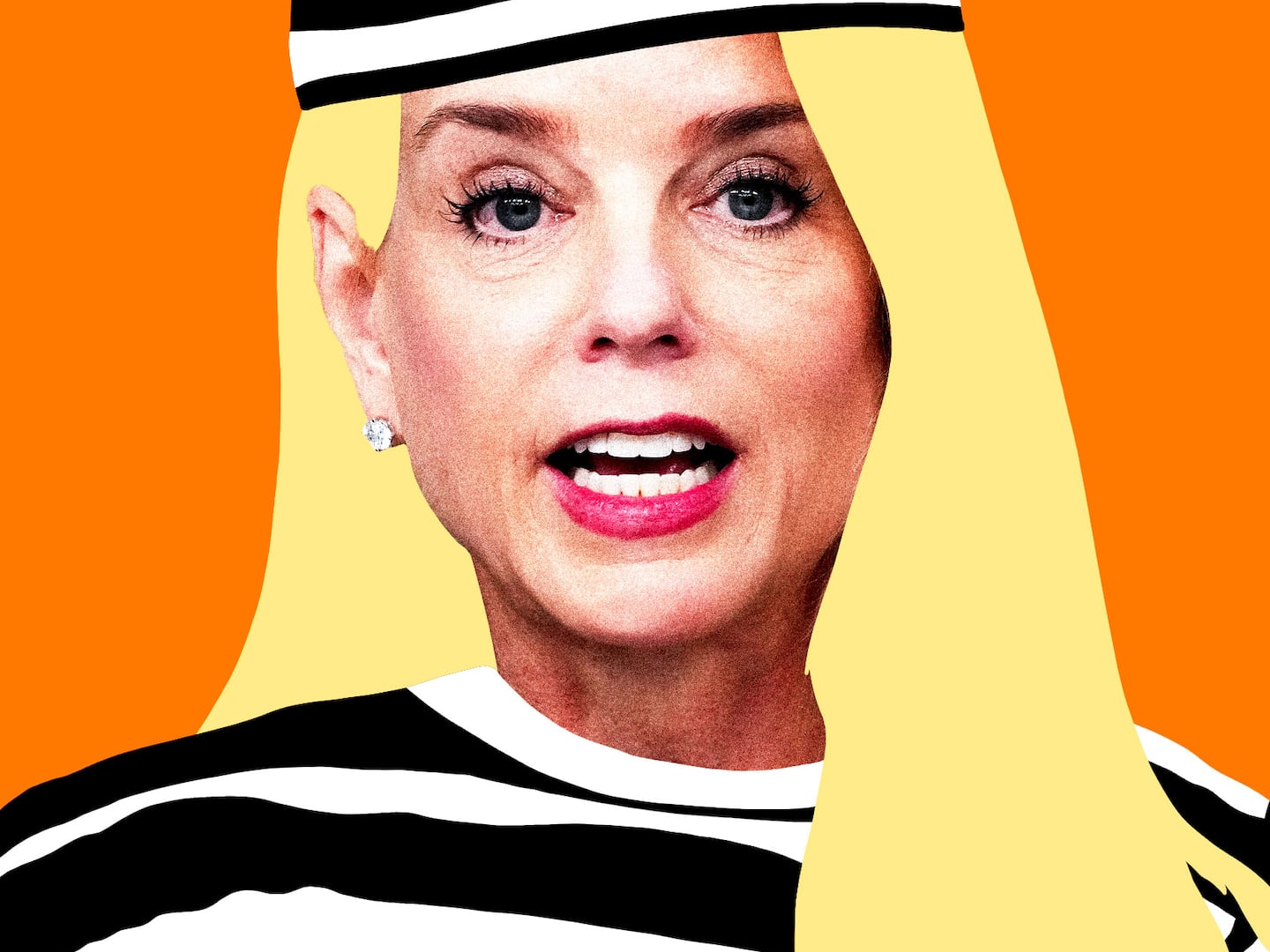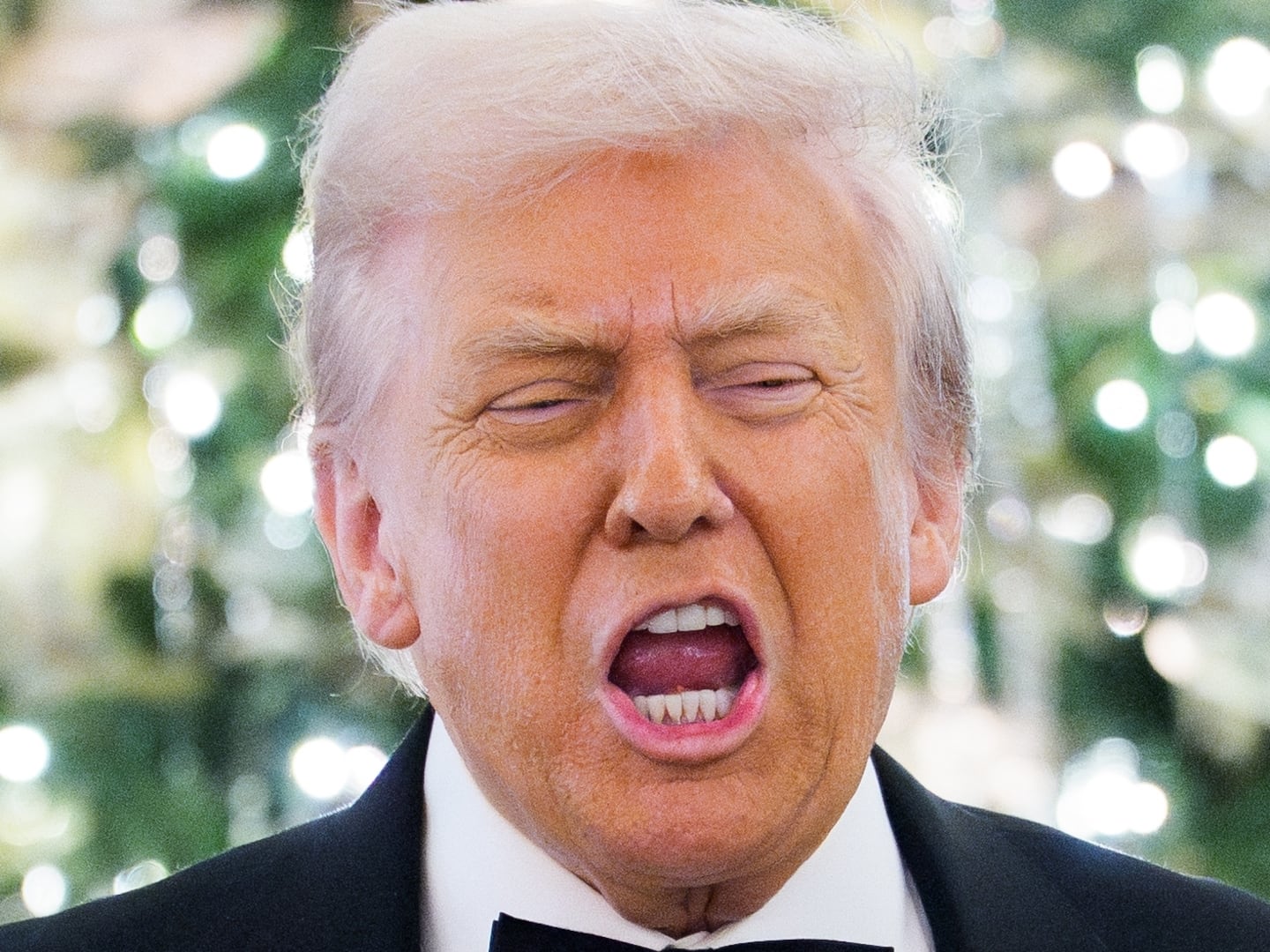According to Israeli clothing company Hoodie, “Freedom is basic.” It turns out, the concept of autonomy might not be as simple as Hoodie execs first thought.
Per a Buzzfeed News report, the brand has come under fire for its latest ad campaign, which stars the supermodel Bar Refaeli. A 15-second clip begins with a close-up of Refaeli wearing a black hijab and niqab.
A Hebrew phrase, translated as “Iran is here?” captions the shot. Then, Refaeli pulls off her headwear, flips her hair, and dances while a song with the lyrics, “It’s all about freedom” plays. The campaign slogan? “Freedom is basic.”
It’s the kind of in-your-face marketing that could have been pitched as “edgy” in a brainstorm meeting. But for many Muslim women or religious scholars, equating modest dressing with oppression is getting old.
“The truth is that this is such a tired, tired argument,” Afaf Nasher, executive director for the New York chapter of the Council on American Islamic Relations, told The Daily Beast. “I’m 40-plus years old, and from the time that I was a teenager, the portrayal of women being oppressed in some way because they choose to cover up has existed. It’s just something that refuses to die.”
Sylvia Chan-Malik, an associate professor of Gender Studies at Rutgers University and author of Being Muslim: A Cultural History of Women of Color and American Islam, put it more bluntly. “My first reaction is that it’s boring,” Chan-Malik said with a weary laugh. “It’s just a symptom of the kind of really lazy and flat, unimaginative type of thinking that we’re locked in for so many of our conversations these days.”
Chan-Malik didn’t hesitate to call the ad racist, even though it appears to target a religious stereotype rather than an ethnic group. “These types of stereotypes that are trafficked against entire groups of people are very much a type of racial logic that is rooted in the way that we group people, create social hierarchies, and divisions,” she explained.
The Daily Beast reached out to reps for both Refaeli and Hoodie, but received no response.
The apparel brand, which is based in Rosh HaAyin, Israel, has worked with the model in the past on similar, but much less contentious ads. One campaign from 2017 followed multiple images of the model strutting through a sports field in short shorts, t-shirts, and a trucker hat.
While the ad clearly intends to court controversy, it also serves up a bit of unintended hypocrisy. The message that a woman can only truly express her independence with midriff-baring sports bras (ideally courtesy of Hoodie apparel), robs consumers of their ability to dress themselves.
“What they’re saying is that freedom equals wearing certain clothing,” Nasher said. “You don’t need to take my word for it—look it up in the dictionary. Freedom is your right, your power to act, speak, or think as you want. Within the context of a person’s choice of clothing, freedom means you choose how you want to express yourself, your values, and your morals. That’s the opposite of what they are displaying.”
The video, which has been removed from the Instagram accounts of both Refaeli and Hoodie, still lives on YouTube and Twitter, where it has received almost universal backlash. A woman named Marwa Balkar, who called out the ad on Twitter, told BuzzFeed News that message made her feel “like vomiting.”
“To say that we don’t have freedom of choice, is taking away our freedom of choice. That’s the irony of all this. The ones that believe we’re oppressed are the oppressors,” she told the outlet.
It doesn’t help that the very first image in the commercial—Refaeli’s eyes, seen through slits in a black burqa—is a played-out motif.
“The image of a black niqab, that particular image, has been burned into the western imagination,” Chan-Malik asserted. “It’s a stand-in for the way the West engages the idea of Islam and Muslims. It’s a stand-in for western religious superiority and justification for military occupation. That particular piece of clothing has so much baggage associated with it.”
Viewing modest religious dress (which can take many forms for Muslim women, from head-covering to simply appearing demure) in the binary of “good” and “bad” distills a complex topic.
“Context matters,” Chan-Malik said. “Yes, sometimes clothing can be restrictive and repressive. In different countries and different historical eras, it can mean different things. But we fall into these lazy ways of thinking in which we just have an assumption that one thing means the same thing in all time and space forever.”
Indeed, for many young women living in Europe or the United States, covering up is an active choice—despite decades of the media portraying niqabs as dangerous. Considering most college students were born around 2000, many have never known a post-9/11 world.
“They’ve never known a way of being, or a consciousness or young adulthood where they’re not constantly being put in a place where they have to refute certain stereotypes,” Chan-Malik said of her Muslim students. “They don’t know how to be themselves without having to say what they’re not.”
The professor said she often hears stories from Muslim students who want to wear head scarfs, but are discouraged by their parents. “I have students who say all the time, ‘My dad says I’ll do better in college if I take it off, but I don’t want to.’”






